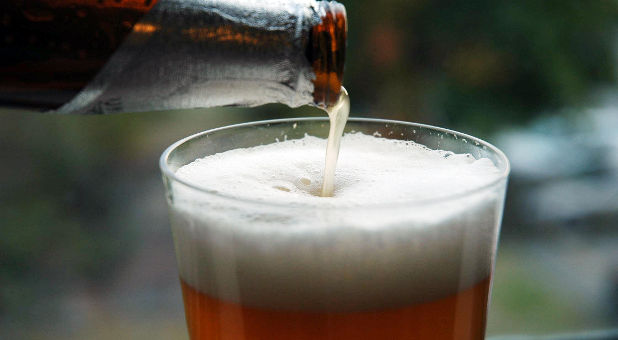5 Denominations Explain Varied Stances on Alcoholism
How do some of the nation’s Christian denominations address alcoholism among their leaders? Here’s a sampling:
1. SOUTHERN BAPTISTS
The Southern Baptist Convention has passed more than 50 resolutions about the “deleterious effects of consuming alcohol,” said Roger S. Oldham, spokesman for the convention’s Executive Committee. The most recent resolution, passed in 2006, urged that “no one be elected to serve as a trustee or member of any entity or committee of the Southern Baptist Convention that is a user of alcoholic beverages.”
“In instances where a pastor may need treatment for substance abuse, he or his church would seek services in the same way other members of their communities would,” Oldham said.
2. ROMAN CATHOLICS
Joe Zwilling, spokesman for the Archdiocese of New York, said his archdiocese has responded to priests with alcohol and other addictions, including drugs and gambling. An independent network of Catholic treatment centers helps priests battling any number of problems.
“We do work with them in terms of finding a treatment facility for inpatient treatment, if that’s required, and then follow-up care with them afterwards,” he said. “We try to be as open as possible with the congregations involved, particularly if we’re talking about a pastor, so that they’re aware of what’s happening.”
3. UNITED METHODIST CHURCH
“At one time, the denomination had a requirement that all clergy and youths sign abstinence pledges,” said the Rev. Cynthia Abrams, director of the General Board of Church & Society Health & Wholeness program, but that ended decades ago. “I’m sure there are United Methodist hospitals, and other health facilities that have treatment services. There are churches that have recovery ministries, some very extensive, others nominally, such as opening their church buildings to 12-step groups.”
4. ASSEMBLIES OF GOD
“We are in the process of writing a more complete paper supporting our historic and official position on abstinence from alcoholic beverages,” said Assemblies of God General Superintendent George O. Wood. “We require all ministerial applicants to agree to refrain from drinking alcoholic beverages; and recommend to our constituents that they also abstain.”
The Assemblies of God does not have its own treatment facilities for leaders dealing with alcohol addiction. “If a minister is drinking alcoholic beverages and their usage becomes known to the district in which their credentials are held, the district will take appropriate action to refer, discipline with rehabilitation or dismiss the minister,” he said.
5. EVANGELICAL LUTHERAN CHURCH IN AMERICA
The Evangelical Lutheran Church in America addressed addiction and substance abuse in its “Definitions and Guidelines for Discipline” of ordained ministries, which states: “The approach of this church to such a problem may be to insist upon effective treatment or to initiate immediate discipline.”
Candice Hill Buchbinder, a spokeswoman for the ELCA, said the “self-care” expected of ordained ministers can include receiving counseling for substance abuse. Regional ELCA synods handle referrals to treatment facilities that are approved by health insurance.














































